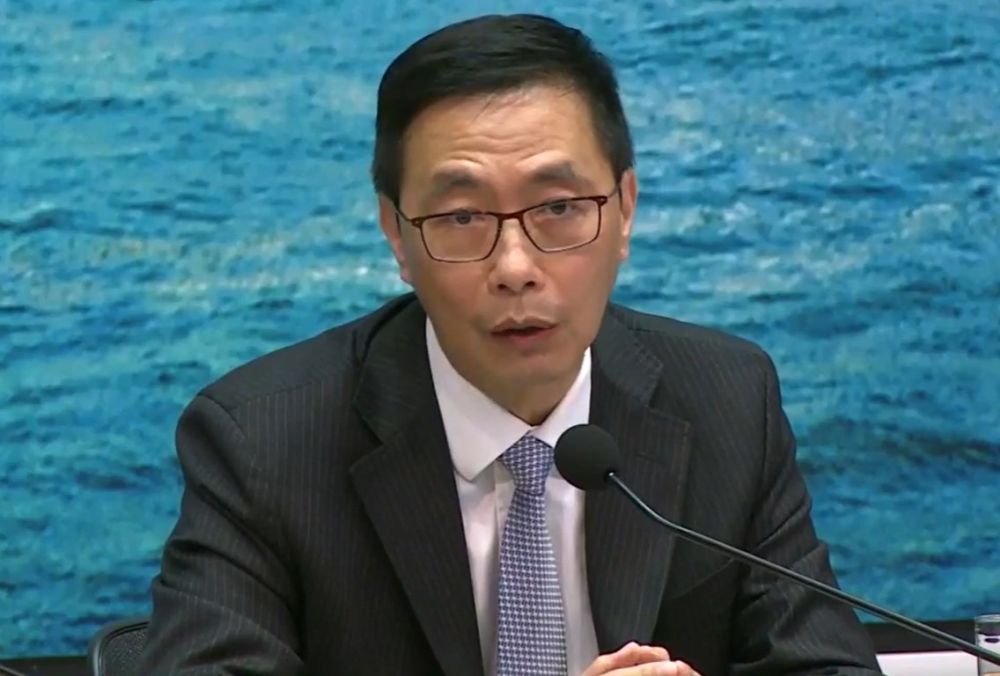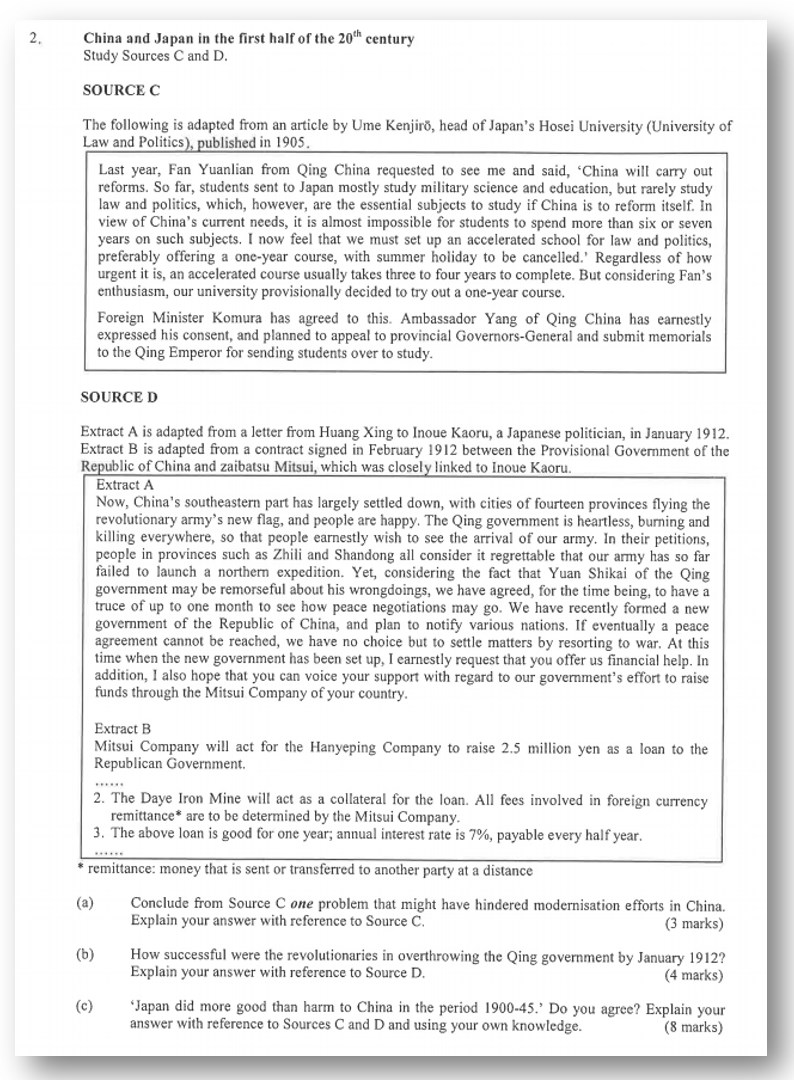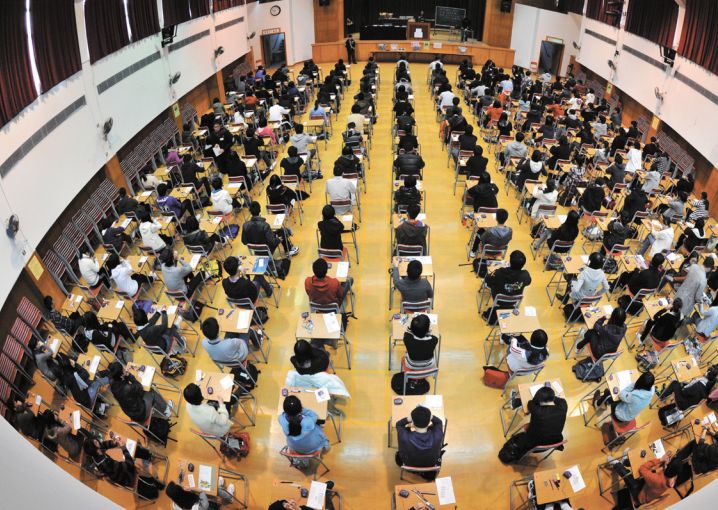The Education Bureau has requested that the local exam body scrap a question in the history paper of this year’s Diploma of Secondary Education (DSE) exam. It claimed the question about Sino-Japanese history was “leading and biased.”
In the history exam that took place on Thursday, candidates were asked whether they agreed with the statement “Japan did more good than harm to China in the period of 1900-45.” They had to answer the question using their own knowledge and reference to two sources provided, which mentioned Chinese students studying in Japan and Japan’s loan to the republican government of the time.

At a press conference on Friday, Secretary for Education Kevin Yeung said information attached to the question was “one-sided” and only focused on Japan’s assistance to China. He said the question was therefore considered “leading,” and it was highly possible that students would come to a “biased conclusion” when citing the provided sources.
“It deviated from comprehensive and objective historical fact. It could not reflect students’ knowledge and [students] may not get a fair assessment,” he said.

Yeung added it was widely known that Japan launched attacks on China in the 1930s and caused tens of thousands of deaths, saying the exam question would hurt the feelings of Chinese people.
The bureau will request that the Hong Kong Examinations and Assessment Authority (HKEAA) invalidate the question concerned, as well as make appropriate adjustments to ensure the credibility and effectiveness of the history exam.

Education Bureau personnel will also visit the HKEAA next Monday to investigate the setting, vetting and approval mechanism for the question under the DSE. They will review whether the mechanism was strictly complied ith during the preparation of the history paper.
‘Traitors’
The move came after the bureau expressed “deep regret” and condemned the exam question design in a late-night statement on Thursday. Earlier that day, state media including the Ta Kung Pao, Wen Wei Po and Global Times lambasted the question as encouraging students to be “traitors” and criticised some staffers of the HKEAA as unfit for setting exam questions, citing their social media posts in support of the anti-extradition bill movement.
The Chinese Foreign Ministry commissioner’s office in Hong Kong also wrote on Facebook that Hong Kong education could not become a “doorless chicken coop” without regulation, echoing Chief Executive Carrie Lam’s comment on Monday.
The HKEAA issued a statement on Friday morning before Yeung’s announcement. The exam body said they would handle the controversy seriously and expressed deep regrets over the potential harm caused to those who suffered great pain during the Japanese invasion.

Isaac Cheng, vice-chair of pro-democracy group Demosisto, slammed the bureau’s move as political suppression and “blatantly pressuring” the HKEAA to self-censor. He questioned whether the university entrance exam would only be left with “politically correct” questions and answers, and whether students would only know how to recite official answers in the future.
“Why is the Education Bureau can only see the point about insulting Chinese? Why is it that educators who handle things with professionalism are always wrong?” Cheng asked.
“When [the Education Bureau] encounters political issues, they just throw students’ interests away and cancel the exam question to manifest their political loyalty,” he added.
The Second Sino-Japanese War occurred between 1937 and 1945 and caused millions of deaths in China. Japan has been heavily condemned over its war crimes, particularly over the Nanjing Massacre in which their military killed more than 200,000 Chinese civilians and perpetrated mass rape during December 1937 to January 1938.
